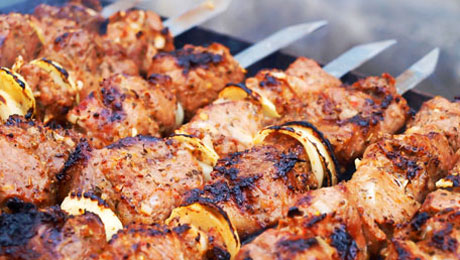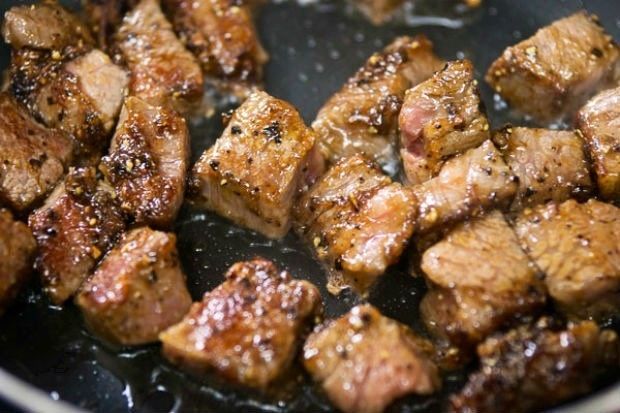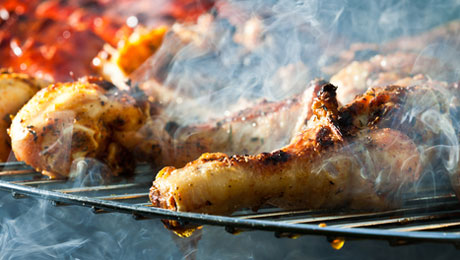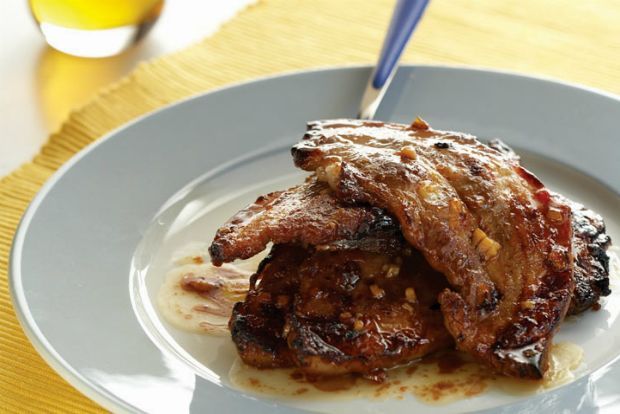Tsiknopempti is a traditional Greek holiday that vegetarians hate. It is celebrated every year on the last Thursday before the Great Lent. The very name of the holiday suggests that it is associated with feasts and especially with the consumption of grilled meat. Restaurants that are famous for their good meat menu, taverns, and grills in the courtyards and balconies will start smoking early tonight.
Although it is not a rest day, it definitely brings a festive atmosphere. The butchers in the closed market "Varvakios agora" in the centre of Athens have already started grilling meat and treating the residents and visitors to Athens to it. As announced by their chairman Kleanthis Tsironis, butchers have provided 1.5 tons of meat and the municipality of Athens has provided wine.

Here are some interesting facts about the holiday which, according to Wikipedia, is also celebrated in other countries such as Poland and Germany, where it is called Fat or Fatty Thursday.
- It is believed that it is celebrated on the fourth day of the week, as Wednesday and Friday are traditionally days of lent for Orthodox Christians.
- The name of the holiday is associated with the word "tsikna" which means the smell of grilled meat and "pempti" which means Thursday.

- The day marks the beginning of the ten carnival days which end on Sunday before the Great Lent or on 2 March this year.
- In the past, in certain parts of Greece, the traditional slaughter of pigs started in the week before Tsiknopemti.
- In the region of the Peloponnese the people slaughter pigs on this day and prepare different foods such as jelly, crackling, sausages, lard and bacon.
- The residents in the region of Serres light large fires to roast meat and the braver of them jump into the fires.

- In Komotini the main "characters" of the party are hens that the housewives singe and prepare for the second Sunday before Lent. According to tradition, engaged couples exchange gifts in the form of food. The man sends his fiancée a hen and she, in turn, sends him a stuffed hen and baklava.
- In Patras the tradition is called "Kouloura" and is related to wedding. According to the local oral tradition, Yanoula, the daughter of the pretzel maker, thought that Admiral Wilson was madly in love with her and wanted to marry her. So, every year on Tsiknopemti "she" puts on bridal attire and goes to the port to meet him in the company of her fellow citizens, who dance and have fun.

- On Corfu the custom of Tsiknopempti is called "Petegoletsia". "Petegoletsia" or "petegoulio" is the local word for the practice of spreading gossip, which many people like. So, that evening, a kind of theatrical performance takes place in the main square in the town of Corfu in which the residents become "gossipers" and discuss funny stories that happened on the island.
- On the island of Ios in the Aegean Sea the tradition is associated with mummers’ games. The residents of the island put on furs, hang bells on their belts and go about houses and shops. On the island of Poros young men steal one noodle that they then put under the pillow to dream of their future wife.
- Тhe tradition in the region of Epirus is similar, only young men there put under their pillow strips of the traditional woollen braiding, which they tear during the last ring dance on the second Sunday before Lent.

- The town of Naoussa in northern Greece is known for its traditions in the period before the Great Lent. Young men dress as "janissaries" and "brides" and go round the city to the sound of clarinets and drums.
So, wherever you are you will surely smell some grilled meat and you should just sit and have a bite. However, book a table at your favourite restaurant before that since there will be none free, despite the crisis.